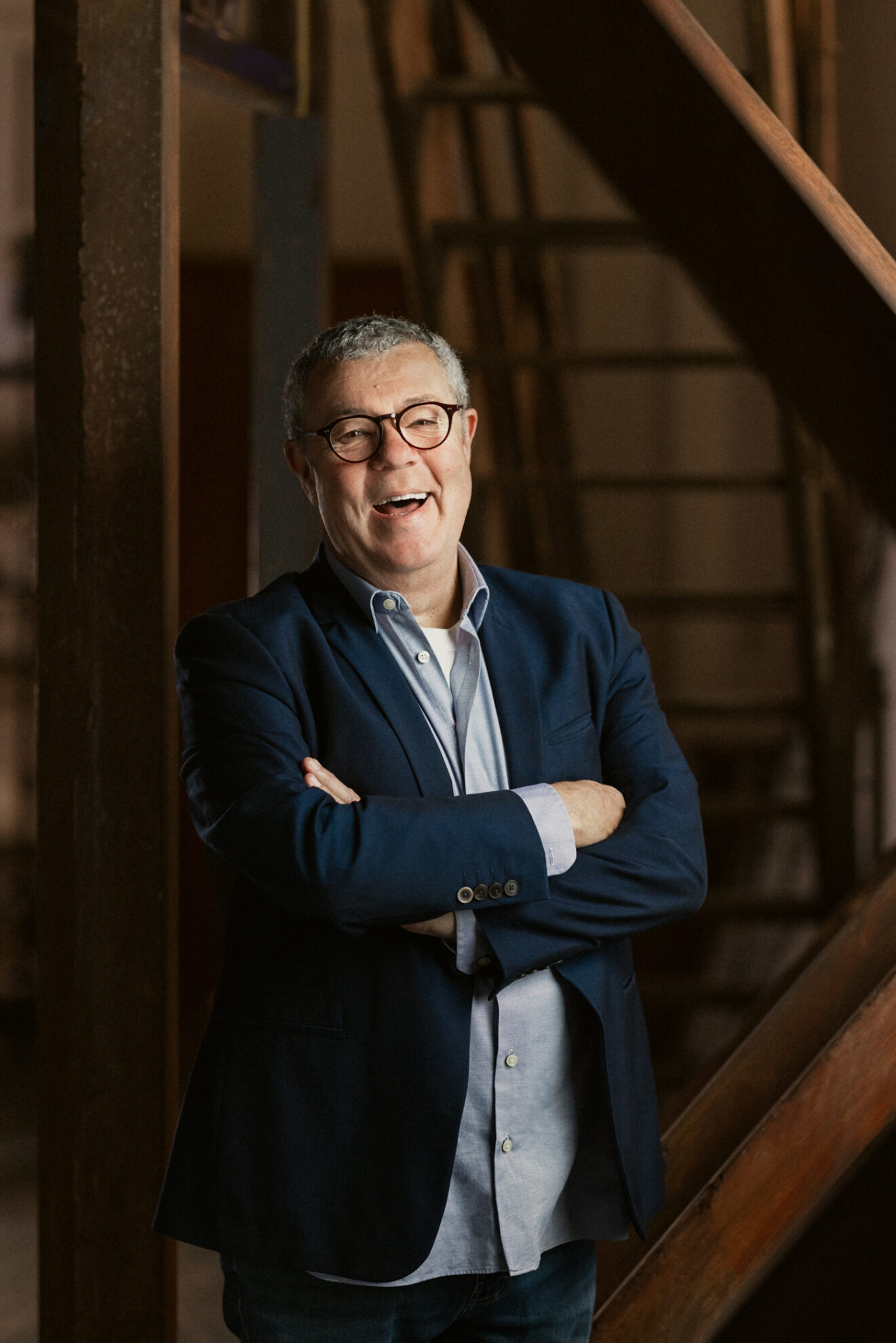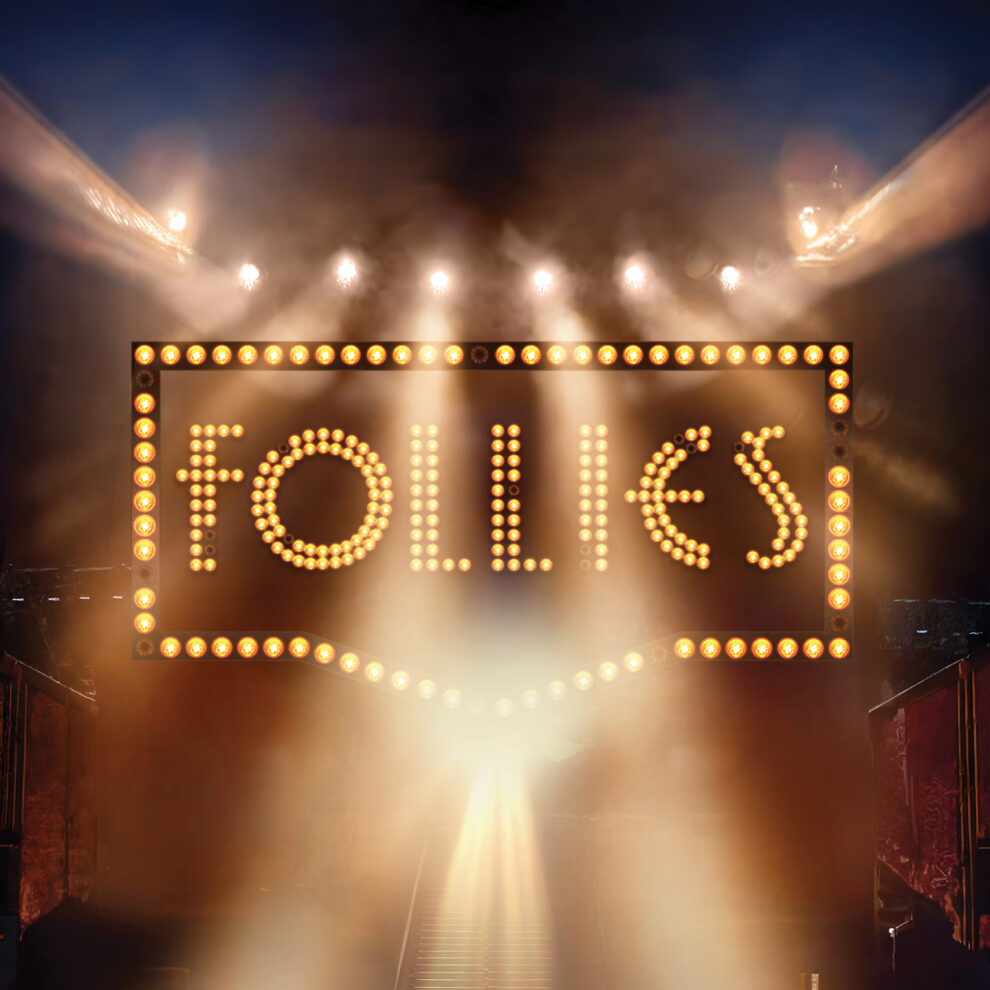‘Haunted, beautiful and full of exquisite pain and wonder’: Stuart Maunder on Follies
Victorian Opera’s Artistic Director Stuart Maunder AM reflects on Stephen Sondheim and James Goldman’s musical masterpiece Follies ahead of our performance in February.
One fateful day in 1977, Phil Scott — actor, singer, satirist, friend — lent me his double album of the current West End hit: Side by Side by Sondheim. I marvelled at the even then extraordinary output, from West Side Story to Pacific Overtures, from this giant of music theatre. And as wonderful and varied as every song was, the title most represented with the most melody, chutzpah and pain was the 1971 musical Follies.
I had just joined the Australian Opera as an assistant stage manager and, armed with a tour allowance, I haunted Readings in South Yarra, buying every original Broadway cast album of the available Sondheim shows. Save for meagre liner notes to guide me (no YouTube, no videos, no libretto — just vinyl, and a few photos on the sleeve), I listened and listened loud.
Songs that had captivated me in the four-hand piano accompaniment on Side by Side suddenly burst through the speakers. There was the vaudevillian bombast of A Funny Thing Happened on the Way to the Forum, the quirky head-bending logic of Anyone Can Whistle, the frenetic urban clamour of Company, and the elegant sophistication of A Little Night Music. But most striking was the haunting, theatrical Follies.
I will never forget putting the Follies LP on for the first time and experiencing the Prelude’s thunderous timpani roll, dark, ghostly brass chords that morphed into a spidery, spectral theme. This was unlike anything in Sondheim’s output — haunted, beautiful and full of exquisite pain and wonder.
Like most people who had not seen the 1971 original season of the show, I had no idea of the full force of Follies until I experienced the show in a full production. And that was a long time coming — London, 2018. Concert versions had showcased the entire score, reduced by half on the original cast album, but these versions necessarily truncated James Goldman’s acerbic and truthful book. And of course, the physical productions were minimal. These, often thrilling, occasions were licensed as Follies in Concert. But that’s a different experience to the full show.
Follies, the show, is much greater than the sum of its parts. No musical is more informed by its every ingredient. A masterful blend of a revelatory score, showbiz spectacle and existential exploration, Follies is set against the backdrop of a reunion for former performers of a Ziegfeld Follies-style revue. It is a smash up of derelict theatre and fantasy world — bugle beads and tinsel and rubble. Here, themes of memory and regret force the characters to confront their past selves. The action shifts between present and past, the ghosts of their former lives emerging and retreating, echoing memories of lost dreams.

Central to the story are two couples: Sally and Buddy, Phyllis and Ben. Their stark contrast between youthful dreams and harsh realities of middle age serves as a metaphor for America’s postwar decline and loss of innocence. The complexities of aging and the weight of memory resonate within the walls of this crumbling theatre in Follies, inviting audiences to confront their own ghosts.
In his first published review, 19-year-old Frank Rich (later, chief critic of the New York Times) wrote of the show’s Boston try-out in 1971:
“Follies is a musical about the death of the musical and everything musicals represented for the people who saw and enjoyed them … There is no getting around the fact that a large part of the chilling fascination of Follies is that its creators are in essence presenting their own funeral.”
With the benefit of hindsight, a ‘wake’ is maybe a more apt description. In the 54 years since that first production, we can now acknowledge that Follies began an evolution of musicals into something altogether more sophisticated and nuanced. It is now a celebration of regret, of resilience, and of resignation.
There is no musical like Follies. The title, in every sense of the word, says it all: all is folly, nothing is what it seems to be, what it should be, what it could be, what we hope for, what we can hold on to. Follies challenges us to reckon with our lives and the choices we’ve made.
“Never look back,” warns the old opera singer, Heidi, in the duet ‘One more Kiss’. But no one listens.
